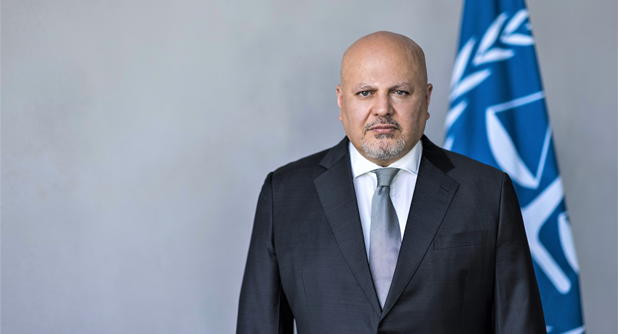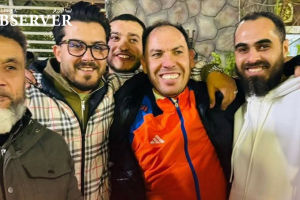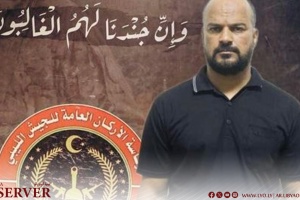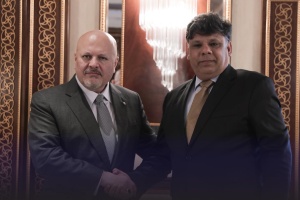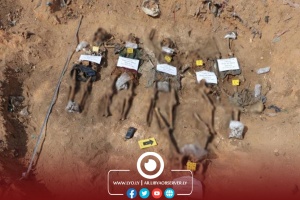The Prosecutor of the International Criminal Court (ICC), Karim Khan, confirmed in his briefing at the Security Council that his office was working to prosecute the people named in the public and non-public arrest warrants of the ICC, pointing out that the ICC was keen on providing a clear picture of what it would present in the Libyan case and has achieved notable progress in its strategy during the past six months.
Khan said in his semi-annual briefing on Wednesday that he and representatives of the Public Prosecution Office of the Criminal Court conducted 15 visits to three regions in Libya, during which they were able to collect evidence, which included more than 4,000 items, and conduct interviews with witnesses on the incidents under investigation.
The ICC Prosecutor also explained that the cooperation with the Libyan authorities represented the sound basis for achieving noticeable progress regarding the Libyan situation during the coming period, stressing the need for the ICC to fully cooperate with the Libyan authorities to pursue the arrest of the wanted.
He added that the ICC had reached the main standards within the framework of the investigative plans for crimes related to the period from 2014 to 2018 in Libya, saying that his office achieved progress regarding similar issues in detention areas and crimes against immigrants, in addition to significant engagement with those affected by these crimes, including the victims and their representatives.
Khan indicated that there was a need for a regional presence for his office in Libya to help expedite investigations and obtain key evidence and witnesses to speed up justice, explaining that his office also organized training courses for civil society organizations on justice standards compatible with the ICC to ensure everyone’s participation in crimes within the ICC jurisdiction.
He stressed that the ICC was working on using technology to move forward in investigations, and this has included using the Internet to manage evidence, which allowed the Libyan team to benefit from artificial intelligence (AI) and translation devices to capture the words spoken by victims and witnesses when listening to them.
Khan also confirmed that he and members of his Office had received entry visas to Libya on November 08, noting that his upcoming briefing before the UN Security Council would be from Libya, for the second time.

